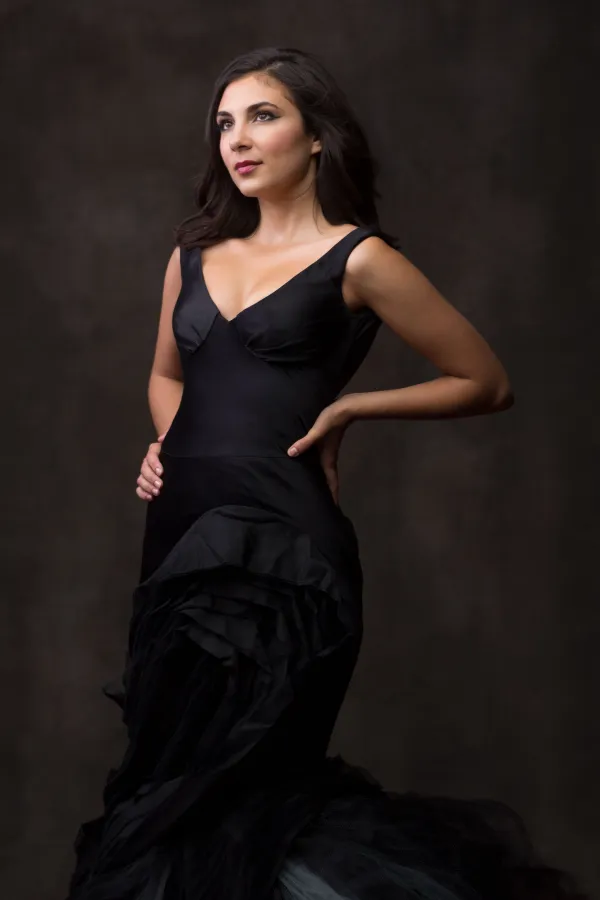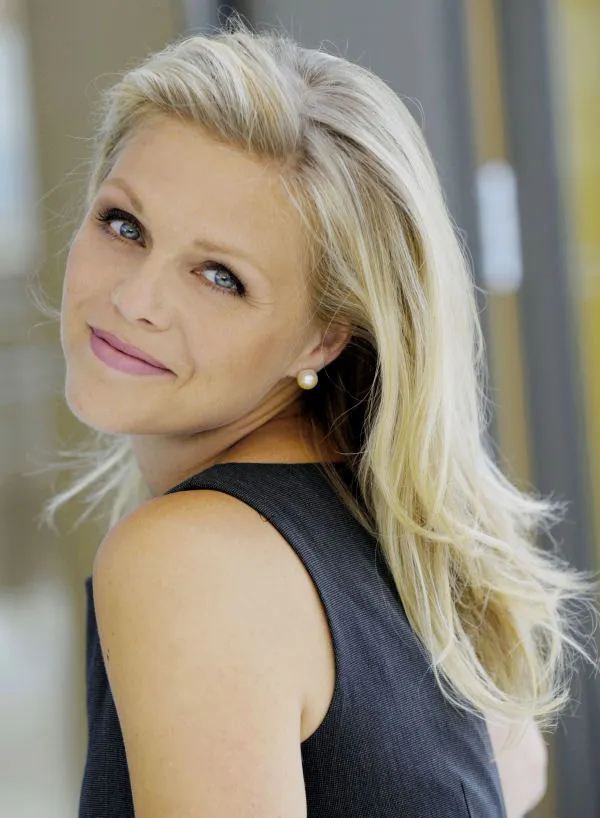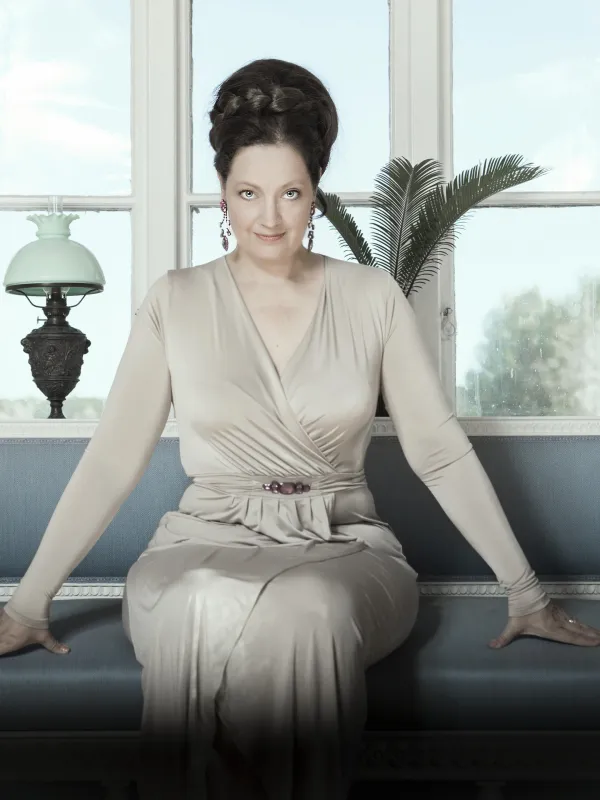I had second thoughts as I braved an atmospheric river of rain, using my periscope to drive on the freeway to Downtown L.A.’s Music Center to hear George Frideric Handel’s Solomon. But the rapturous atmospheric river of sound that awaited me made me glad that I had made the effort to hear the three-and-a-half-hour cascade of baroque instrumental music with choir and soloists regaling this heathen and a near capacity crowd with three vignettes from the Old Testament about Judea’s King Solomon set to Handel’s indelible strains.
Verily, let me set the sonic scene for thee, Dear Reader: Onstage at the venerable Dorothy Chandler Pavilion there were none of LA Opera’s usual sumptuous sets. Perched upon the bare boards were 30-plus musicians of the London-based English Concert, males and females all clad in black slacks and jackets, playing upon restored or replicated iterations of the instruments that the composer had originally intended his music to be performed on way back in the 18th century, before America was even a country. In between tickling the ivories of a period harpsichord, the English Concert’s artistic director, Harry Bicket, conducted the orchestra with flowing flourishes at center stage.
The mostly seated musicians were divided in half, facing each other, while in the rear two rows the 30-plus sopranos, altos, tenors and bass members of the New York-based Clarion Choir directly faced the audience. The vocal ensemble’s women wore black gowns, the men black slacks and jackets, and they all rose from their seats to hold forth as one when it was their turn to sing, under the artistic direction of Steven Fox.
Along with the lack of sets, none of the costumes that generally adorn LA Opera productions garbed the soloists. This is because Solomon is not an opera per se, but rather, an oratorio, a lengthy, large-scale musical composition on a sacred subject performed by an orchestra, choir and solo singers. An oratorio is a concert piece; unlike opera, it is not acted out, hence no sets or story-appropriate apparel required. Solomon premiered at London’s Covent Garden Theatre in 1749 – during the 18th century, it was forbidden to present operas based on the Bible.
In Act I, Solomon has constructed a temple in Jerusalem and the wife (Swedish soprano Miah Persson) joins the monarch if Israel and Judah in glowingly singing of their love for one another. Now here’s the unusual thing about this production: Solomon’s lyrics are sung by Swedish mezzo-soprano Ann Hallenberg. That’s right – the English Concert’s king is a queen. The quasi-religious lyrics (which are sung in English, as the German-born Handel had relocated to England – but the words also projected in English above the stage as supertitles) are full of lush, loving, lusty lyrics with sexual undertones, as Mrs. Solomon repeatedly, rhapsodically croons about their “nuptial bed.” (By the way, listening to and watching Ms. Persson, a blonde beauty, mellifluously sing, one can quite easily dream about rapturously traipsing throughout eternity by her side. I mean, she seems like the ideal woman to me – although to be honest, I haven’t the slightest idea what she’d ever see in this hapless reviewer…)
In the first act the lyrics (the libretto is attributed to Newburgh Hamilton – not to be confused with Hamilton Burger, the district attorney in the Perry Mason TV series) include these words: “Ye zephirs, soft-breathing, their slumbers prolong,
While nightingales lull them to sleep with their song.”
Indeed, the onstage nightingales and musicians, which here favored the strings, almost lulled this reviewer to slumber – but I don’t mean at all because the music was boring. Rather, I mean it in the sense that the score was so transcendentally tranquil and deeply relaxing it could soothe a seething soul.
Act II added brass instruments and the music became livelier. The second act is about King/ Queen Solomon’s best-known deed and probably one of the most familiar episodes from the Old Testament: Wise Solomon’s baby splitting proposition, which smokes out who is the actual mother of an infant claimed by two women. Willowy Irish mezzo-soprano Niamh O’Sullivan sings the Second Harlot’s lyrics and Ms. Persson in a dual role gives voice to the First Harlot. (Hey, for readers who are linguistic gatekeepers, these aren’t my terms and if you don’t like the word “harlot” and its usage, shoot the wordsmith who wrote this stuff – don’t blame your humble but faithful transcriptionist!)
Following the second of two intermissions, the resplendent reception of the Queen of Sheba (Cuban-American soprano Elena Villalón) by King/Queen Solomon and his court is recounted. Act III opens with the only piece of music from Solomon your benighted critic had ever previously heard, “The Arrival of the Queen of Sheba” and it is delightful doozie, with rapid fire, almost staccato bursts of strings and brassy instruments. This is one of those pieces of music that makes you feel glad to be alive (and that I hadn’t crashed on the 101 en route to the Dorothy Chandler) – if only to be able to hear such notes of sheer exuberance and joyousness. A rough rock ’n’ roll counterpart in terms of mood might arguably be Cream’s “I’m So Gald.”
As for the sultry Queen of Sheba, the dark-haired Ms. Villalón is in stark contrast to the blonde Ms. O’Sullivan and Ms. Persson, who are both clad in blue gowns. Ms. Villalón’s sensuous Sheba wears a shimmering, simmering gold lamé, off-the-shoulder gown. When Ms. Villalón, alas, left the stage I felt like crying out, to paraphrase William Inge: “Come back, not-so-little Sheba”!
The high priest Zadok (James Way) congratulates Solomon on the majesty of the temple he has wrought. Your humble and most obedient scribe would be remiss if he did not point out the astonishing vocal range and ability of this young English tenor, who certainly has a way with words. Way can uncannily hold and repeat a vowel over and over again. The only way this vocabulary-challenged scribbler can describe this quavering talent or technique is to liken it to an 18th century form of scatting, centuries before jazz was invented.
For some reason at one point in Act III, the music takes a martial turn with trumpets, horns and timpani accompanying the strings. The grand finale is in the tradition of Handel’s most famous piece of music, the immortal (no pun intended) “Hallelujah Chorus” from his 1741 oratorio, “The Messiah,” with another ebullient, rousing celebration of the Lord.
Who knows what the English Concert intends by casting a woman to perform the traditionally (and historically) Biblical male role? Perhaps the intent is to give the Old Testament a 21st century twist. I guess it’s out of the temples and into the streets and if the English Concert wants loads of free publicity, I recommend they mount Solomon at the Ruby Diamond Concert Hall in Tallahassee and invite Governor Ron Dementis to opening night – which would likely be their closing night, too, as Florida is where “woke” (whutevah that means – you know, crazy radicals who believe in nutty things like ethnic and gender equality?) opera goes to die. But judging by the enthusiastic standing ovation the English Concert and Clarion Choir enjoyed at the end of their three-and-a-half-hour musical marathon, they are certainly most welcome in the City of the Angels.
Despite the rainfall, I’m happy to have risked the elements to experience the one-night-only special performance of Handel’s Solomon at the Dorothy Chandler Pavilion on March 10 in order to hear, as the libretto puts it: “Music, spread thy voice around, Sweetly flow the lulling sound.” To paraphrase postal workers’ unofficial motto: “Neither snow, nor rain, nor heat, nor gloom of night stays these critics from the swift completion of their appointed rounds.” Have pen, will travel!
For more info see: https://www.laopera.org/performances/202223-season/solomon?vgo_ee=%2B1lciultlWA8zKn8C8x8xYvy7T5YEJ8ohjC9vauJg30%3D ; https://clarionsociety.org/ and https://englishconcert.co.uk/.





